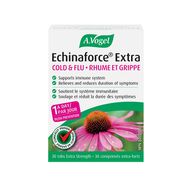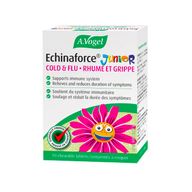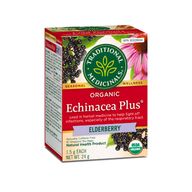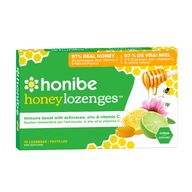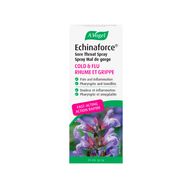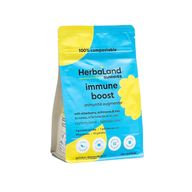Echinacea: the Immune-Boosting Purple Flower
Echinacea is a herbaceous flowering plant that has been used in traditional medicine for centuries. It is believed to have immune-boosting properties and is commonly used to treat the common cold, flu, and other respiratory infections. In this article, we will explore the health benefits of echinacea and what scientific studies say about its effectiveness.
What is Echinacea?
Echinacea, also known as coneflower, is a genus of nine species of herbaceous flowering plants in the family Asteraceae. The most commonly used species for medicinal purposes are Echinacea angustifolia, Echinacea pallida, and Echinacea purpurea.
Echinacea contains a variety of biologically active compounds, including alkamides, caffeic acid derivatives, and polysaccharides. These compounds are believed to have immune-stimulating, antiviral, antibacterial, and anti-inflammatory effects, which help to boost the immune system and fight off infections.
Health Benefits of Echinacea
1. Immune-Boosting Properties
Echinacea is reputed for its capacity to positively impact the immune system. This plant may assist the immune system in fighting infections and viruses, thus potentially accelerating recovery from illnesses. The active components reduce the ability of infectious agents to infiltrate the body's cells and enhance the responsiveness of immune cells to combat invading microorganisms.
Echinacea contains a group of compounds known as echinacosides, which have been shown to stimulate the immune system by increasing the production of white blood cells. White blood cells are responsible for identifying and destroying foreign invaders in the body. When white blood cell production is increased, the immune system becomes more effective at fighting off infections.
Echinacea has also been demonstrated to be a wide-spectrum immunomodulator that regulates both innate and adaptive immune response in both healthy and immune suppressed animals, according to a study published in Journal of Medicinal Food.
2. Treating Upper Respiratory Tract Symtoms
Echinacea supplementation has been shown to potentially alleviate symptoms associated with acute respiratory infections (ARI) and the common cold, especially when taken at the onset of infection.
Based on current evidence, it appears that taking Echinacea supplements can potentially reduce the severity and length of ARI. One systematic review from Complementary Therapies in Medicine indicated that echinacea may lower the likelihood of developing an upper respiratory tract infection by 22%.
A 2016 meta-analysis published in Advances in Therapy found that the use of Echinacea extracts reduced the risk of repeated respiratory infections, with the evidence from six clincal trials involving 2458 participants.
3. Skin Health
Research indicates that echinacea can enhance the skin's natural moisturizing abilities by elevating the levels of epidermal lipids, ceramides, and cholesterol. Collectively, these advantages help maintain the strength of the skin's protective outer layer, which reduces the loss of moisture over time.
Echinacea has potential in treating common skin concerns. For instance, a study found that a supplement containing an extract from eggplant and echinacea was effective in improving mild to moderate acne compared to a placebo.
In one 2010 study, skin care products containing echinacea extract were found to enhance skin hydration and reduce wrinkles in a sample of 10 individuals. Additionally, a cream containing extract from Echinacea demonstrated improvement in eczema symptoms and repair of the skin's outer protective layer.
Dosage and Side Effects
Echinacea appears to be safe and well tolerated for short- and long-term use. Individuals with leukemia, multiple sclerosis, liver disorders or any autoimmune conditions may avoid taking Echinacea. Side effects may include headaches, dizziness, stomach ache and skin itchiness. There is currently no official dosage recommendation for echinacea.
References
Zhai, Z., Liu, Y., Wu, L., Senchina, D. S., Wurtele, E. S., Murphy, P. A., Kohut, M. L., & Cunnick, J. E. (2007). Enhancement of innate and adaptive immune functions by multiple Echinacea species. Journal of medicinal food, 10(3), 423–434. https://doi.org/10.1089/jmf.2006.257
Aucoin, M., Cooley, K., Saunders, P. R., Carè, J., Anheyer, D., Medina, D. N., Cardozo, V., Remy, D., Hannan, N., & Garber, A. (2020). The effect of Echinacea spp. on the prevention or treatment of COVID-19 and other respiratory tract infections in humans: A rapid review. Advances in integrative medicine, 7(4), 203–217. https://doi.org/10.1016/j.aimed.2020.07.004
David, S., & Cunningham, R. (2019). Echinacea for the prevention and treatment of upper respiratory tract infections: A systematic review and meta-analysis. Complementary therapies in medicine, 44, 18–26. https://doi.org/10.1016/j.ctim.2019.03.011
Schapowal, A., Klein, P. & Johnston, S.L. Echinacea Reduces the Risk of Recurrent Respiratory Tract Infections and Complications: A Meta-Analysis of Randomized Controlled Trials. Adv Ther 32, 187–200 (2015). https://doi.org/10.1007/s12325-015-0194-4
Rinaldi, F., Marotta, L., Mascolo, A., Amoruso, A., Pane, M., Giuliani, G., & Pinto, D. (2022). Facial Acne: A Randomized, Double-Blind, Placebo-Controlled Study on the Clinical Efficacy of a Symbiotic Dietary Supplement. Dermatology and therapy, 12(2), 577–589. https://doi.org/10.1007/s13555-021-00664-z
Oláh, A., Szabó-Papp, J., Soeberdt, M., Knie, U., Dähnhardt-Pfeiffer, S., Abels, C., & Bíró, T. (2017). Echinacea purpurea-derived alkylamides exhibit potent anti-inflammatory effects and alleviate clinical symptoms of atopic eczema. Journal of dermatological science, 88(1), 67–77. https://doi.org/10.1016/j.jdermsci.2017.05.015

